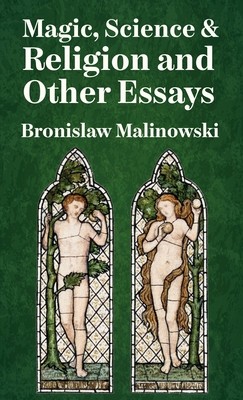
- We will send in 10–14 business days.
- Publisher: Lushena Books
- ISBN-10: 1639234470
- ISBN-13: 9781639234479
- Format: 14 x 21.6 x 0.6 cm, kieti viršeliai
- Language: English
- SAVE -10% with code: EXTRA
Magic, Science And Religion Hardcover (e-book) (used book) | bookbook.eu
Reviews
Description
In his handling of science, magic, and religion, Malinowski essentially accepted the traditional Western conception of a dual reality-the reality of the natural world, grounded in observation and rational procedures that lead to mastery, and supernatural reality, grounded in emotional needs that give rise to faith. Unlike Frazer, for example, Malinowski derived science not from magic but from man's capacity to organize knowledge, as demonstrated by Trobriand technical skills in gardening, shipbuilding, etc. In contrast, he treated magic, which coexisted with these skills, as an organized response to a sense of limitation and impotence in the face of danger, difficulty, and frustration. Again, he differentiated between magic and religion in defining magical systems as essentially pragmatic in their aims and religious systems as self-fulfilling rituals organized, for example, around life crises.
EXTRA 10 % discount with code: EXTRA
The promotion ends in 21d.09:02:43
The discount code is valid when purchasing from 10 €. Discounts do not stack.
- Publisher: Lushena Books
- ISBN-10: 1639234470
- ISBN-13: 9781639234479
- Format: 14 x 21.6 x 0.6 cm, kieti viršeliai
- Language: English English
In his handling of science, magic, and religion, Malinowski essentially accepted the traditional Western conception of a dual reality-the reality of the natural world, grounded in observation and rational procedures that lead to mastery, and supernatural reality, grounded in emotional needs that give rise to faith. Unlike Frazer, for example, Malinowski derived science not from magic but from man's capacity to organize knowledge, as demonstrated by Trobriand technical skills in gardening, shipbuilding, etc. In contrast, he treated magic, which coexisted with these skills, as an organized response to a sense of limitation and impotence in the face of danger, difficulty, and frustration. Again, he differentiated between magic and religion in defining magical systems as essentially pragmatic in their aims and religious systems as self-fulfilling rituals organized, for example, around life crises.


Reviews